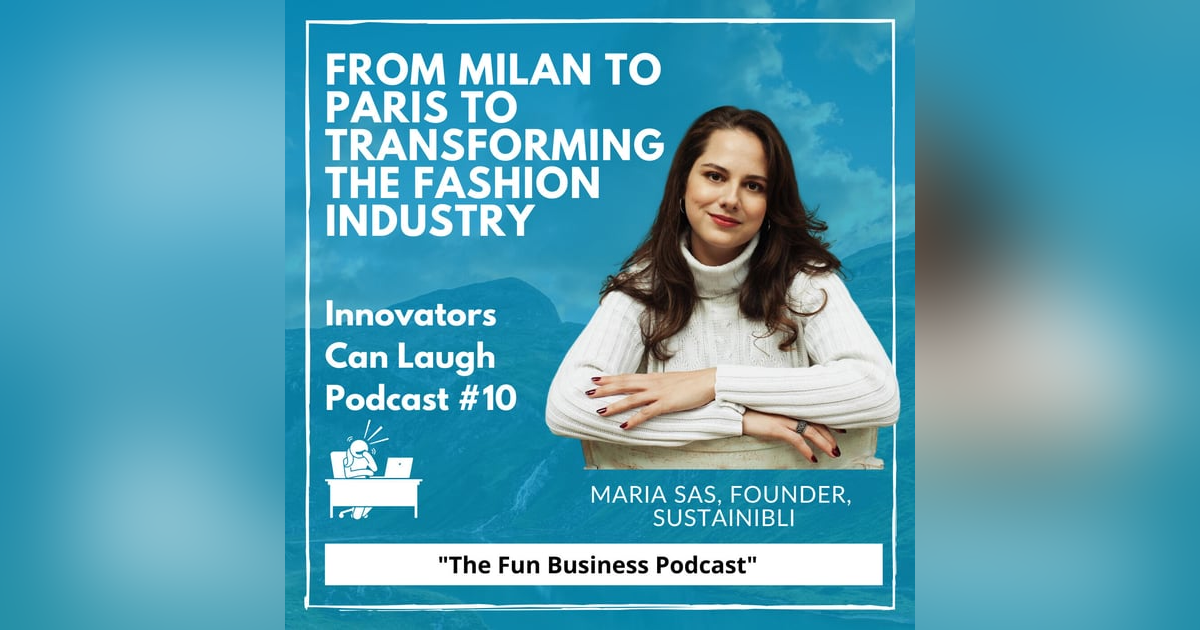From Bucharest to Milan to Paris, Maria Sas is shaking up the fashion industry by making it possible for style to be sustainable and circular.

Let’s say you're working as a fashion designer, and you need a bit more research on how you can make your clothing, accessories, and brand more sustainable. Where could you turn to?
Well Romanian startup founder, Maria Sas, has taken her design skills, entrepreneurial vision, and creativity to create Sustainibli - the first action-oriented community centered web platform for students and professionals within the fashion industry. Aside from making it possible for fashion to be sustainable and circular, the platform has a robust database of sustainable driven manufacturers and companies, resources, and community.
I sat down with founder Maria Sas as we discussed her venturesome background and fearless dream to shake up the fashion industry. Hope you enjoy the conversation as much as I did.
In this episode of Innovators Can Laugh, I sat down with Maria Sas, founder of Sustainibli. We discussed her experience studying in Milan and Paris, working as a fashion designer, and working to launch the first action-oriented community centered web platform for students and professionals within the fashion industry.











